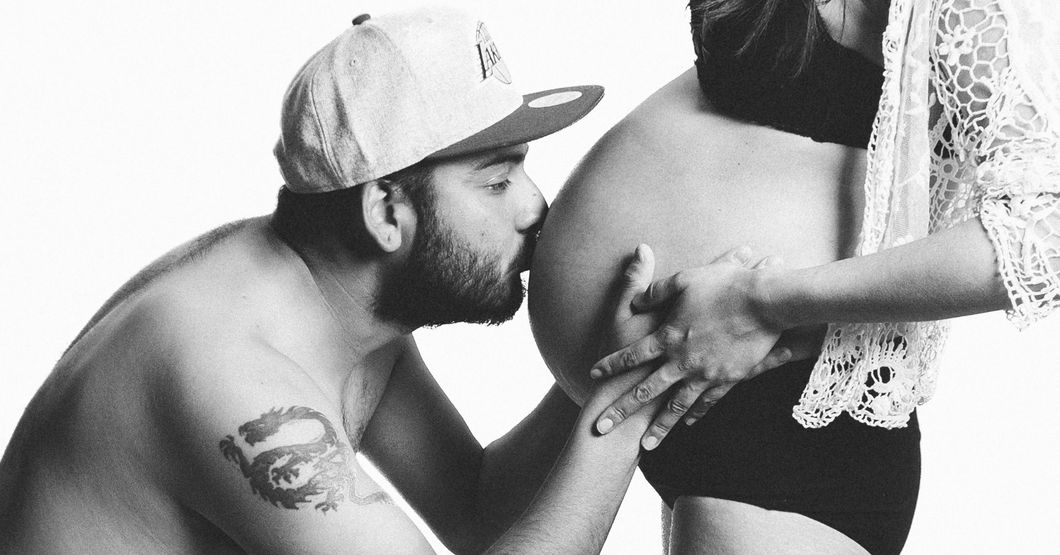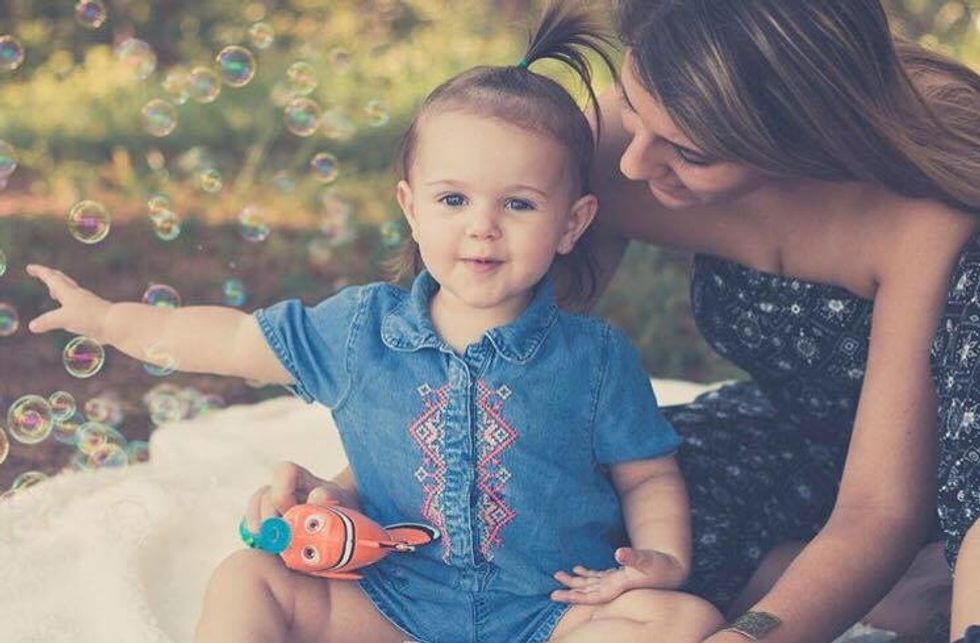If You Identify As 'Pro-Life,' You Should Really Support Life-Saving Policies
If the reasoning behind bans on women being able to control their own bodies is "protection of life" then let's really start protecting life.
My frustrations with the recent abortion bans and criminalization have brought me to think a lot about what I can do in response. The narrative of protecting women's right to their own lives and their own decision-making simply isn't enough and it still is not working. I think we need to be more creative in our appeals to those who disagree with us because it takes a lot to reason with someone who does not have the same beliefs as you. So, I've decided that if we are going to pass this part of the pro-life agenda, let's make all of our legislation in support of human life.
Starting with maternal and child health during childbirth, the United States has a ridiculously high infant mortality rate for a developed country. The United States also has the highest rate of maternal deaths during pregnancy in the developed world. Perhaps we need to enact legislation to research why this is and to prevent the deaths of many mothers and children during childbirth. It is completely unreasonable that a developed country should have the lapse in childbirth care that the United States has, so why wouldn't legislators want to save the lives of all of those mothers and children?
Next comes healthcare insurance. If we're protecting the lives of unborn children, we must also protect the lives of children who have already been born, which means giving their families access to quality health insurance. Without sufficient healthcare people across the United States face unnecessary deaths. 2018 congressional candidate Amy Vilela experienced this phenomenon first hand when her daughter passed away after being refused medical care because their family did not have health insurance.
What about gun laws? With the number of Americans regularly dying from gun violence. It seems unrealistic to save unborn children but not protect children in our school systems from death. Legislators need to prioritize preventing unsafe individuals from obtaining guns and placing restrictions on when and where individuals can carry firearms. We should be protecting the lives of children beyond the day they are born, ensuring that they will not be killed by people who have unrestricted access to weapons.
There are hundreds of other issues, from federally funded childcare and early education to better public schools to stopping childhood hunger, to pulling single mothers out poverty. It is unrealistic to claim care for young children when, legislatively, there is no care for them once they are actually born. If the pro-life community wants to prove to women that they aren't simply trying to control an entire gender, they need to pass legislation that protects children at all stages of life.
I am always a supporter of giving children a better life, but it doesn't make sense to force them into a world that gives them little chance at a life of comfort and opportunity. Let's create a world that women want to bring children into and that they can afford to bring children into before we restrict their ability to control their own fate.



































Don't Tell A Woman 'Her Clock Is Ticking' When You Don't Even Know
Asking a women if/when she will be having kids is both rude and insensitive.
"Your clock is ticking"
"Your time is running out"
As a woman, especially now reaching adulthood, I'm quite frequently asked about my plan for children. When I plan on having them, if I plan on having them and then the opinions of those who ask. If I say I'm not ready for kids yet, which I'm not being only 21, I get told not to wait too long. If I say I don't know when I'm having kids, which I don't because in truth it's often uncontrollable, I get told that I should know at this age.
If I tell them that I want to wait until I'm at least 26, they tell my my biological clock is ticking. I shouldn't wait, before it's too late.
Why do we ask women these questions? What if I was infertile? What if it was impossible for me to have kids on my own? How would I know how to answer these questions?
Those are the things nobody thinks about when they ask someone about their plans for children. Nobody thinks about the challenges that a woman can face while trying to get herself pregnant. It's not as easy as "just having sex" like it can be for most.
You often will meet women in your life who can't have kids, but really want to. When they get asked those questions, you're putting them in the most painful and uncomfortable situation possible. Her heart will break and she'll try to hold back the tears as the "what if" thoughts come rolling through. And because you asked her this question, she can't just disappear and walk away. She's forced to swallow back the lump in her throat and give you some kind of answer as to why she doesn't have kids.
Some women face the problem where they've tried having kids and they do get pregnant. But face problems early in the pregnancy where they lose the baby. Then they're struck with the reminder of what could've been.
Stop asking women anything about when or if they will be having children.
That is a personal question that should never be asked. Whether by a man or another woman. As a fellow woman, you should know not to ask another about their possibility of childbirth.
If a woman is waiting to have kids, do not tell her that her biological clock is ticking. Not only is it incredibly rude, but it is entirely insensitive. A woman should be allowed to decide when or if she wants to birth children. We do not live in the 1950's where every woman had to marry by a certain age and have kids right after.
We now live in a world where, women have a choice. Some women don't want kids, they'd rather focus on their careers and living their life. Some do want kids, but want to wait until they are out of college.
Whatever the case may be. Don't, ever, ask a woman about when she's having kids or if she's having kids. That is her business and her partners. Not yours. Unless she brings up the conversation with you first. Do not ask. Whether you have known her for years and especially if you have just met her.
Stop asking.